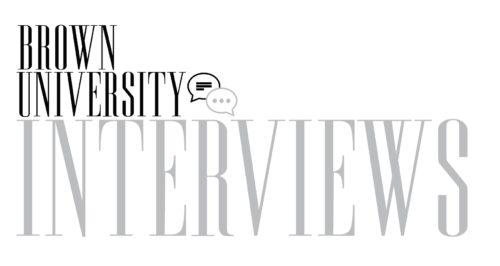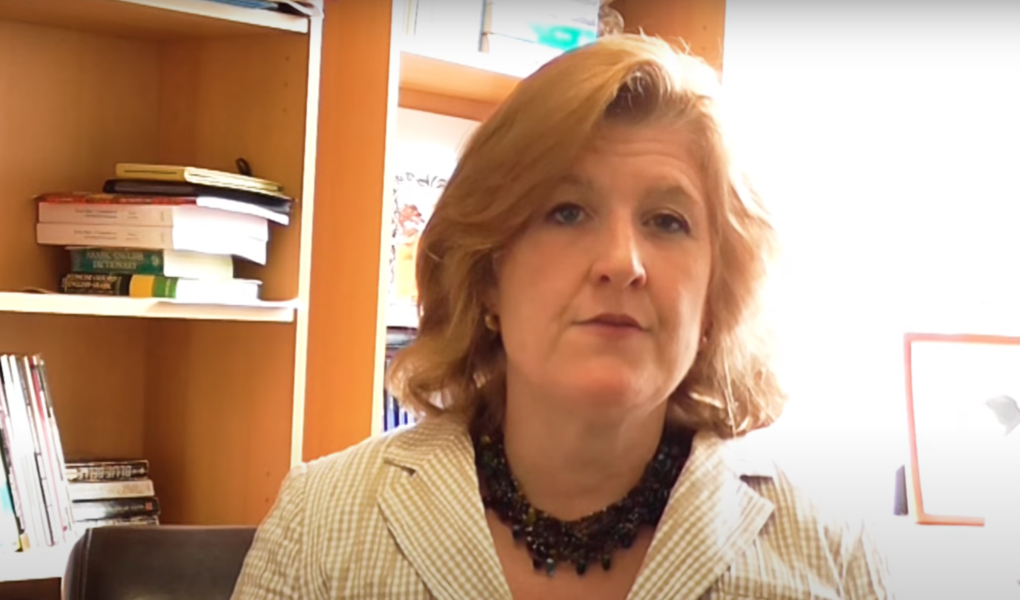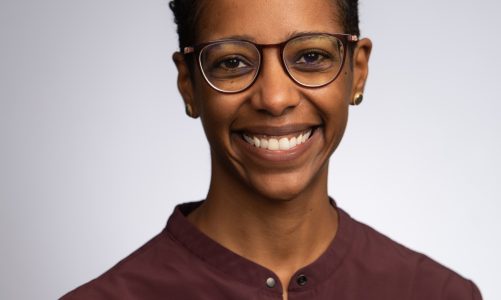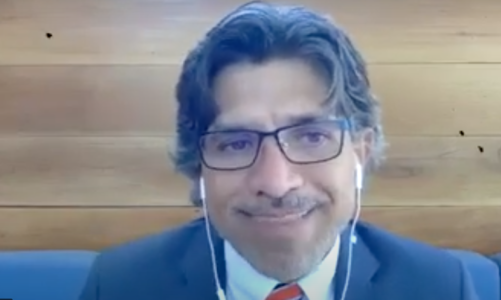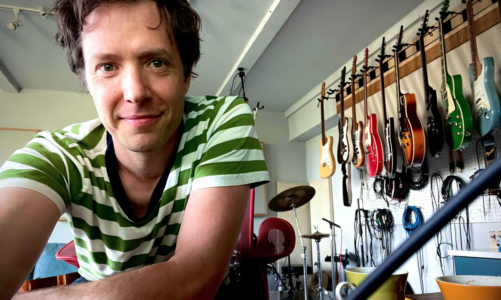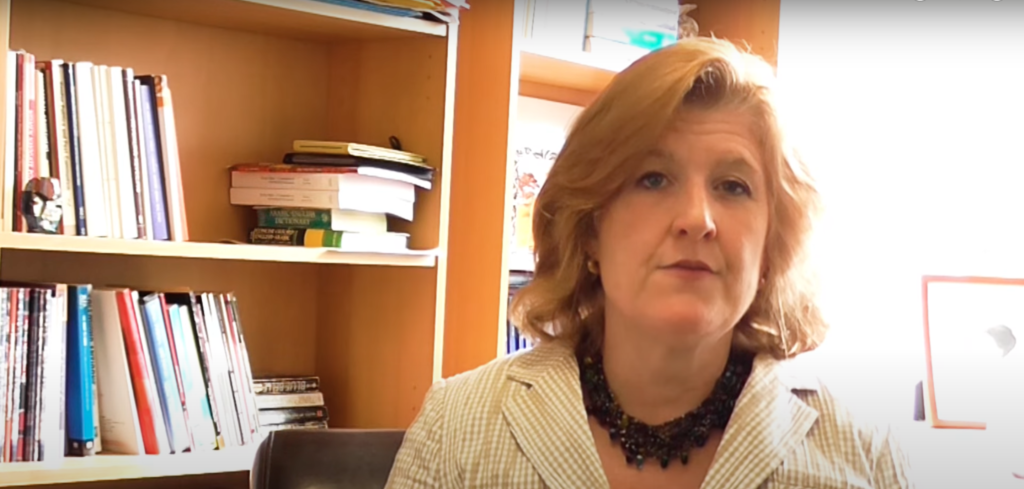
Regan E. Ralph is the founder and president of the Fund for Global Human Rights. Over the past twenty years, her efforts have led to the distribution of over 100 million dollars to civil rights activists all over the world. Before starting her fund, Ralph was the Vice President of the National Women’s Law Center and was the Executive Director of the Women’s Rights Division for Human Rights Watch for over a decade. She graduated from Harvard University in 1987 with a degree in International Law. During her college years, she studied abroad at the London School of Economics, but also worked for the Legal Aid Society, where under the tutelage of three lawyers, she helped improve the working conditions for thousands of migrant farmers on the eastern seaboard. In 1991, she graduated with a degree in law from Yale Law School.
Jeremy Ha: Was being a part of the remarkable change that a small group of lawyers were making at Legal Aid the catalyst for you to enter the field of human rights, or was it something that was nurtured throughout your childhood?
Regan E. Ralph: I would say it goes back further than my time at Legal Aid because I was born in 1965, and that was when the Civil Rights Movement was really blossoming. During this time, when I looked at the newspaper, there were jobs for men and there were jobs for women. When I went to Harvard, women had only been able to go to Harvard College for less than ten years! It was a time of extraordinary change and a lot of that change was coming because of civil society activism. I also grew up in a place where I always was asking myself: How do I get involved in change that makes peoples’ lives better? I think it really came from growing up in that time in American History and wanting to be a part of making that change so that more people would benefit.
Did you attend law school because it was something you wanted to do, or did you view it more as something you had to do on the path towards getting out in the world and making a difference?
Good question –– I didn’t go to law school because I wanted to be a lawyer, but rather, I went to law school because I thought it was a great way to develop a skill set that would help me make change. I went to law school hoping to do impact litigation [class action lawsuits that change policies and practice], and I wanted to work on poverty issues. Actually, between college and law school I got a fellowship to live in Cairo for a year to study Arabic and to work at American University. Living in a place as different from the U.S. as Egypt got me thinking not just about the social justice struggles we had been experiencing in the U.S., but also how they connected to movements in other places and the situations of people in other places. As such, when I went to law school, I wasn’t sure what I was going to do, but I knew it was going to be something that was involved in making a difference in the world.
How did your experience at the Human Rights Watch, where you began your career, solidify your goals and aspirations?
I initially went to Human Rights Watch on a fellowship and on a sponsorship because they had just started a women’s rights program. Interestingly, when I was in law school, I did a research project that was for the Human Rights Watch, before they even had a women’s rights program! Anyways, one of the first projects I did was on women’s rights for thousands of women from India, Bangladesh, and the Philippines, who were working in domestic service in the gulf –– Kuwait and Saudi Arabia. What happened was that these women, who often paid their life savings to be moved to the gulf so that they could get jobs and send money home, had absolutely no protections: Once they arrived and were placed with families, they would have their passports taken away by their host families, be forced to work twenty-hour days, offered very little opportunity for rest, weren’t paid what they were promised, and in some cases, were beaten up and sexually assaulted.
These abuses were violations of basic human rights. And of course, these women didn’t have any recourse. My job was calling the embassies in the middle of the night [time difference] to investigate and document the aforementioned abuses that were going on because only with this evidence could we make steps toward utilizing the U.S. government or funding those countries’ local groups to make change.
It was that kind of work that we were doing –– using human rights and protections to improve the realities of women’s lives –– that made me realize that that was what I wanted to do. We were bringing human rights norms into a whole new sphere. Women’s rights, for the most part, was considered to be the private sphere and there were laws for that, while human’s rights was considered more political. We were challenging this. Because of cultural norms that had very different roles, women were often confined to a certain sphere of society, but that shouldn’t have meant they were denied protection.
Underneath the paradigm shift of illuminating women’s rights as human rights there was the issue of maintaining political relationships between governments. How did you navigate this?
I have a perfect example. The next work I did [after documenting the use of sexual violence during the Yugoslav Wars in the early 1990s] was looking at the use of virginity testing in Turkey, which is the idea that you can actually subject women to a physical exam which will tell you whether or not they are virgins. Despite the fact that that is medically false, this was a practice that was being used a lot in Turkey. The Turkish police are supposed to be in charge of protecting public morality and that was being interpreted as having the right to stop women whenever they thought they were behaving in ways that were inappropriate, drag them down to the police station, and force them to undergo a virginity test.
Oftentimes these girls were raped by the police with impunity because, in that day in age in Turkey, nobody cared about a girl who is not a virgin, and if they were proven to be virgins, they wanted to take that away. There was no winning in this case. I met with the American ambassador while I was there, and the conversation was, “What is the U.S. prepared to do, and not do, to encourage Turkey to tackle this human rights problem internally?” This is one of the challenges of human rights activism because since there are very few established enforcement mechanisms, what you rely on is the idea that governments care about their image and that they will respond to international pressure –– a tactic called “name and shame,” –– either because it is embarrassing or because it has financial or other consequences, such as sanctions. It was tricky back then since the U.S. and Turkey had other things they were interested in doing together –– economical and otherwise –– but these kinds of negotiations have gotten more difficult over time.
We arguably live in an era where shame is not really a concept anymore. I mean, if we look at the Trump administration, there was a degree of shamelessness about the behavior and the lack of respect for human rights that just opened this whole Pandora’s Box of authoritarians who say, “Why should we care what anyone says about what we do?” Traditional tools of human rights –– exposing and shaming –– are just not enough.
What can the people do when the governments are, as you said, shameless?
It’s a great question, and it’s one that we don’t completely have an answer to. I think if you look at some of the important changes that have happened since 2010, first you see revolutions. For instance, Tunisia was one of the most politically oppressed countries in Africa prior to its revolution, now it has something resembling democracy. Tunisia is actually doing things differently now. It could be an incredible example for other countries that have a history of political repression. It’s really about people taking to the streets.
Another important thing I have learned while running the Global Fund for Human Rights is that “people power” matters. And when you build communities to have an expectation of transparency, of accountability, and of equality, they will act when they feel their rights are not being respected, especially when they are pushed beyond a point where they cannot continue to live, and that makes a difference. That is the idea behind building bigger, broader, and stronger movements; they will be able to hold governments accountable. I think that’s why governments are cracking down on civil society all over the world, trying more and more to make it difficult for independent activists to organize, to make it difficult to raise money to support their work by harassing them or throwing them in jail. These are tried-and-true tactics but they are on the rise.
With so many grassroots movements around the globe, what is your process of choosing organizations to support financially?
Our ambition is to not only support great organizations, but to support the development of stronger movements, meaning that we think about both things when we are doing our grantmaking. For us, we said, “We’re going to find the people who have the vision for tackling the big human rights problems in their context, and we’re going to give them the money and say ‘do what you need to do to make a difference.’” So that’s what we do. Even though we have to do grants year-to-year because we raise all the money every year –– since we don’t have an endowment –– we also support organizations over time. If they’re continuing to do the work, we will continue to support them as they continue to grow stronger and build their networks so that collectively we’re simultaneously supporting the development of strong organizations and the development of stronger movements. Almost inevitably, because we have limited resources, we wind up focusing on top priorities in the country, but those priorities are determined by the organizations we support, not by us.
You have been fundraising throughout your entire career. That’s an invaluable skill, especially for young people. What advice do you have for those just beginning to experience raising money and pitching ideas?
Anybody can do it –– if you have something that you think is important and you have a vision, and if you can speak to people about why it’s important, focus on it and the change you hope to make. It’s kind of like developing a business plan. If you find something that you really believe in and you do the work to figure out how to get there, I think that’s all you need.
*This interview has been edited for length and clarity.
